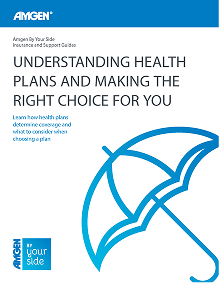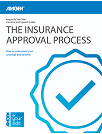APPROVED USE
BKEMV® (eculizumab-aeeb) is a prescription medicine used to treat:
- people with paroxysmal nocturnal hemoglobinuria (PNH).
- people with atypical hemolytic uremic syndrome (aHUS).
BKEMV is not for use in treating people with Shiga toxin E. coli related hemolytic uremic syndrome (STEC-HUS).
- adults with generalized myasthenia gravis (gMG) who are anti-acetylcholine receptor (AChR) antibody positive.
It is not known if BKEMV is safe and effective in children with PNH.
IMPORTANT SAFETY INFORMATION
What is the most important information I should know about BKEMV?
BKEMV is a medicine that affects your immune system and may lower the ability of your immune system to fight infections.
- BKEMV increases your chance of getting serious meningococcal infections caused by Neisseria meningitidis bacteria that may quickly become life-threatening or cause death if not recognized and treated early.
- You must complete or update your meningococcal vaccine(s) at least 2 weeks before your first dose of BKEMV.
- If you have not been vaccinated and BKEMV must be started right away, you should receive the required vaccine(s) as soon as possible.
- If you have not been vaccinated and BKEMV must be started right away, you should also receive antibiotics for as long as your healthcare provider tells you.
- If you had a meningococcal vaccine in the past, you might need additional vaccines before starting BKEMV. Your healthcare provider will decide if you need additional meningococcal vaccines.
- Meningococcal vaccines do not prevent all meningococcal infections. Call your healthcare provider or get emergency medical care right away if you get any of these signs and symptoms of a serious meningococcal infection: fever, fever with high heart rate, headache and fever, confusion, muscle aches with flu-like symptoms, fever and rash, headache with nausea or vomiting, headache with a stiff neck or stiff back, or eyes sensitive to light.
Your healthcare provider will give you a Patient Safety Card about the risk of serious meningococcal infection. Carry it with you at all times during treatment and for 3 months after your last dose of BKEMV. Your risk of meningococcal infection may continue for several weeks after your last dose of BKEMV. It is important to show this card to any healthcare provider who treats you. This will help them diagnose and treat you quickly.
BKEMV is only available through a program called the BKEMV Risk Evaluation and Mitigation Strategy (REMS). Before you can receive BKEMV, your healthcare provider must:
- enroll in the REMS program
- counsel you about the risk of serious meningococcal infections
- give you information about the signs and symptoms of serious meningococcal infection
- make sure that you are vaccinated against serious infections caused by meningococcal bacteria, and that you receive antibiotics if you need to start BKEMV right away and you are not up to date on your vaccines
- give you a Patient Safety Card about your risk of meningococcal infection.
BKEMV may also increase the risk of other types of serious infections, including Streptococcus pneumoniae, Haemophilus influenzae, and Neisseria gonorrhoeae.
- If your child is treated with BKEMV, your child should receive vaccines against Streptococcus pneumoniae and Haemophilus influenzae type b (Hib).
- Certain people may be at risk of serious infections with gonorrhea. Talk to your healthcare provider about whether you are at risk for gonorrhea infection, about gonorrhea prevention, and regular testing.
- Certain fungal infections (Aspergillus) may occur if you take BKEMV and have a weak immune system or a low white blood cell count.
Who should not receive BKEMV?
Do not receive BKEMV if you have a serious meningococcal infection when you are starting BKEMV.
Before you receive BKEMV, tell your healthcare provider about all of your medical conditions, including if you: have an infection or fever, are pregnant or plan to become pregnant, and are breastfeeding or plan to breastfeed. It is not known if BKEMV will harm your unborn baby or if it passes into your breast milk.
Tell your healthcare provider about all the vaccines you receive and medicines you take, including prescription and over-the-counter medicines, vitamins, and herbal supplements which could affect your treatment. BKEMV and other medicines can affect each other causing side effects. Know the medications you take and the vaccines you receive. Keep a list of them to show your healthcare provider and pharmacist when you get a new medicine.
What are the possible side effects of BKEMV?
BKEMV can cause serious side effects, including serious infusion-related reactions. Tell your healthcare provider or nurse right away if you get any of these symptoms during your BKEMV infusion: headache, back pain, diarrhea, upper respiratory infection, urinary tract infections, fever, pain in your abdomen, pain or swelling of your nose or throat, common cold, cough, nausea, vomiting, chest pain, high blood pressure, low red blood cell count, trouble breathing or shortness of breath, swelling of your face, tongue, or throat, swelling of legs or feet, muscle and joint pain, and feeling faint or passing out. If you have an infusion-related reaction to BKEMV, your healthcare provider may need to infuse BKEMV more slowly, or stop BKEMV.
Tell your healthcare provider about any side effect that bothers you or that does not go away.
These are not all the possible side effects of BKEMV. For more information, ask your healthcare provider or pharmacist. Call your healthcare provider for medical advice about side effects. You may report side effects to FDA at 1-800-FDA-1088.
Please see full Prescribing Information and Medication Guide for BKEMV.





